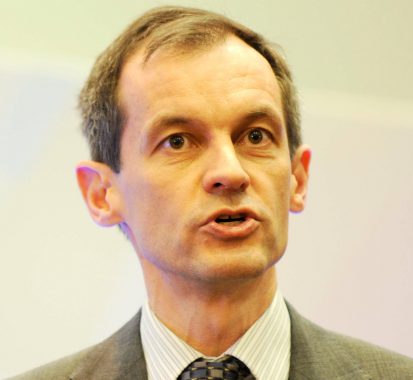‘GPs feel undervalued and angry’

At a time when new promises are being made seemingly every day about funding and reforms for GP services, the BMA’s new tracker poll of GP opinion is a timely reminder both of the real picture on the ground for GPs and the challenges that lay ahead.
The BMA’s snapshot poll taken before the chancellor’s announcement of a £2bn investment in GP infrastructure paints of a picture of a workforce whose morale is continuing to plummet. Around a quarter of respondents rated their morale as ‘very low’ with a further four out of ten saying it was low.
Less than one in ten said they felt their morale was high and no one said it was very high. Looking at other doctors, GPs lag significantly behind the average in contentment compared to other members of the profession, while they have the worst feeling of work life balance.
Perhaps most tellingly, despite politicians finally showing signs in the last 12 months of understanding the problems facing GPs – in no small part down to the BMA’s Your GP Cares campaign – the actual morale of GPs has declined over the same period. This shows that headline grabbing announcements and media spin are not being translated into on the ground results.
It is obvious why we are in this situation: rising patient demand, falling resources and staff shortages are all making it impossible for GPs to do what they are trained for: treating patients.
There is a clear danger for the NHS with morale remaining this low in a key part of its workforce. If staff feel undervalued and angry, they are more likely to leave for better opportunities. Another BMA survey earlier this year showed that seven out of ten GPs were considering early retirement or leaving the profession, with a third actively planning for this decision.
These ripples of dissatisfaction also spread to the country’s medical schools and training facilities where the potential next generation of GPs are seeing first hand by speaking to their peers and undertaking their general practice placements what a difficult career option general practice has become.
This year, more than 400 GP trainee posts were left vacant, including four out every ten positions in the East Midlands. This clearly demonstrates the long term impact on patient care: fewer GPs owing to poor morale will lead to less appointments, fewer services and a level of care in decline.
The chancellor’s announcement of extra investment for GP infrastructure has the potential to start lifting spirits, not least as before the BMA’s campaigning the issue of GP premises and their poor state was not even on the political radar.
However, the text of the Autumn Statement and comments by the health secretary earlier in the week have cast doubt on whether this money will actually be spent specifically on upgrading GP premises. With the state of GP morale as it is, we cannot afford for another set of broken promises from ministers or a prolonged period of murky fudge over this promised funding injection.
As on other matters, the BMA will be pressing relentlessly for politicians of all parties to realise that raising GP morale is an important issue and that it is intrinsically linked to them addressing and then fulfilling their commitments to the GP workforce.
The GP infrastructure funding is the first test, but we must quickly get to grips with the shortage of GPs and other issues that are damaging GP services. Only through a long-term, holistic and properly funded approach can we get back to an environment where GPs are properly valued and patient services are fit for purpose.
Dr Richard Vautrey is deputy chair of the GPC
Pulse July survey
Take our July 2025 survey to potentially win £1.000 worth of tokens












